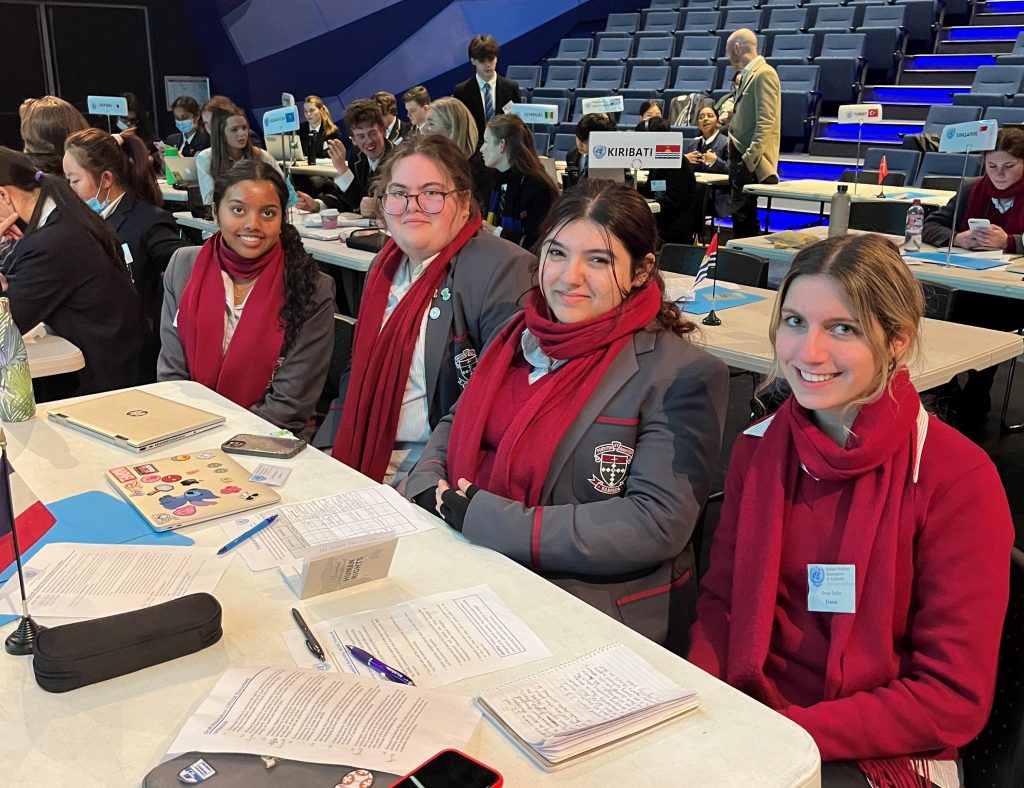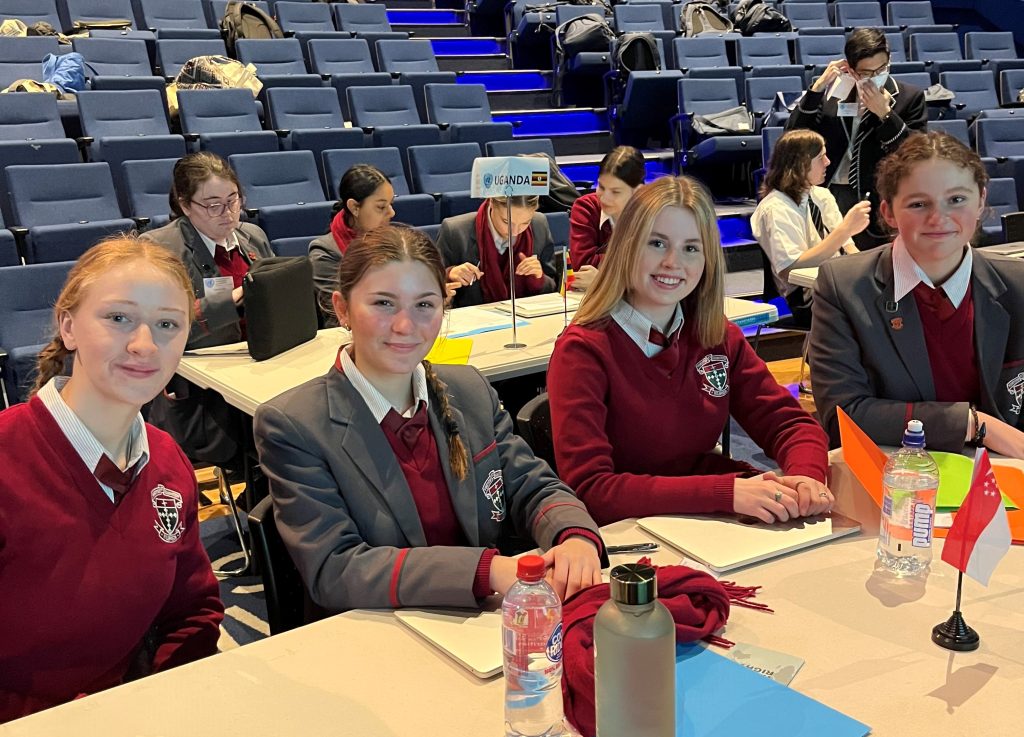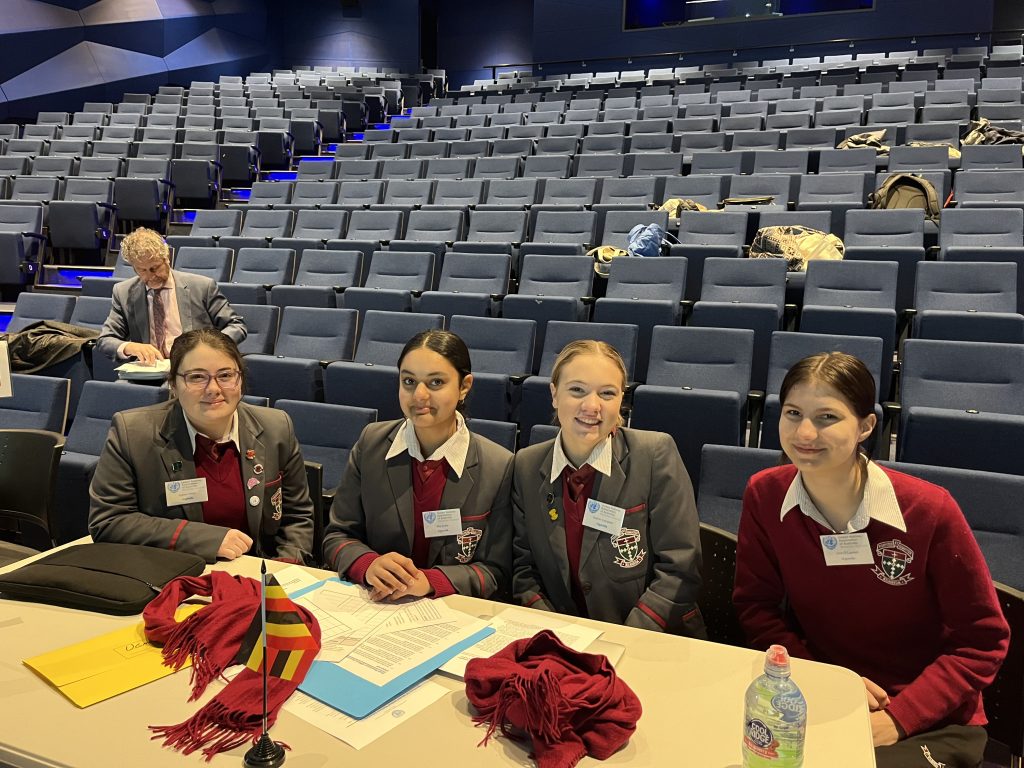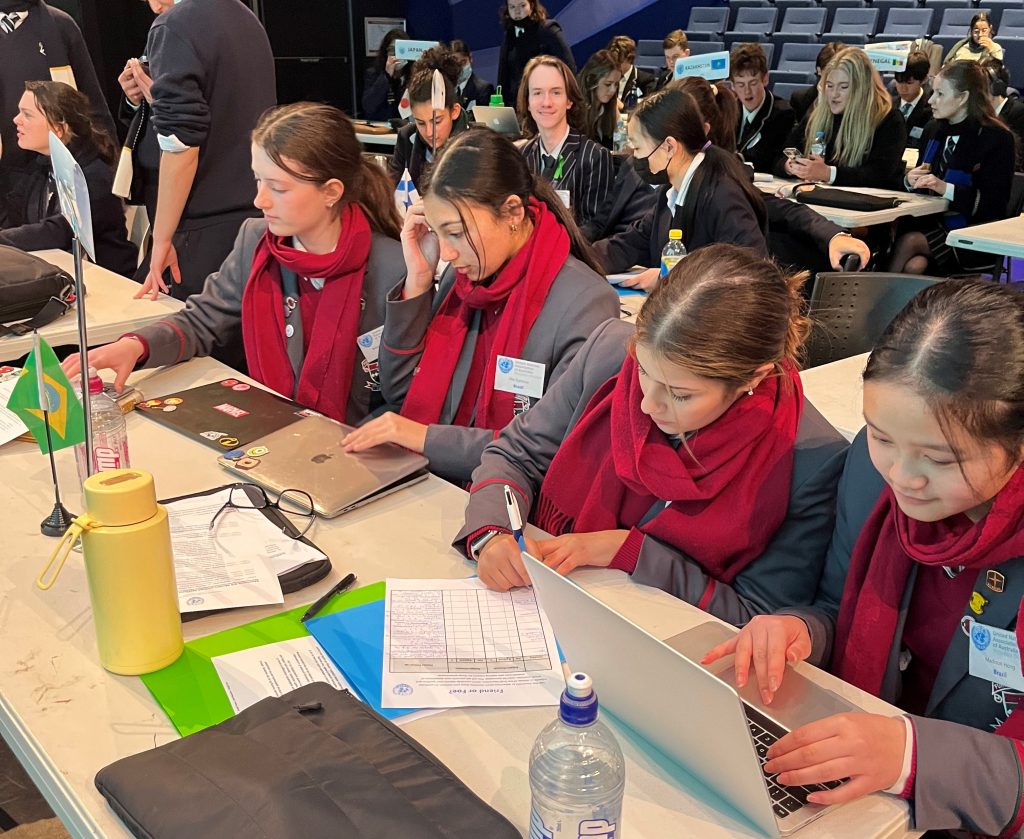Humanities
As the term draws to a close, the Humanities classes continue to participate in some engaging and thought-provoking opportunities for learning. Our second group of students attended a Model UN Conference, this time at Mentone Grammar. These students were from the Year 10 elective subject, Introduction to Global Politics and were working with students from the region who were in Year 11 and Year 12.
Our students drew the short straw being allotted The United States of America as one of their nations. This means, of course, that they were targeted by allies and foes on the day and will be instrumental in all decision making. I am pleased to report, that from all accounts, the Kilbreda students more than held their own, and in fact, were instrumental in amending and passing the resolution. Enjoy reading their recount of the day. I would also like to thank Sue Dempster, who coached them so expertly, to be so well prepared for the activity.
“On 23 August, the Year 10 Global Politics class travelled to Mentone Grammar to partake in a Model UN. Model United Nations, also known as Model UN, is an educational activity in which students can learn and improve their skills of diplomacy, debating, public speaking and knowledge of the United Nations. Our class would represent our own countries and sit with other schools who were divided into groups of countries too, to act as a UN.
At the beginning of Term 3, our class was split into four groups, and each was assigned a country. These countries were Brazil, Uganda, Singapore and France. Our next task was to research all we could about our assigned country to be prepared for questions and answers during the UN meeting. With this new knowledge, we were able to create position statements which stated our countries’ values, opinions, and ideas for our overall goal to create an amendment. An amendment is an imputed change to improve the Draft of Resolutions which applies to all countries that must abide by it. In other terms, this is like a rule book.
The purpose of the day was to create an amendment that would positively impact the building of sustainable cities and adequate housing in all countries.
We started the day off with an address from the Secretary General who introduced all the countries in the room. This included China, Finland, the USA, Nigeria, Australia, Spain, Botswana and more. The Secretary General then began the session in which we read our countries’ Position Statements to the other member states. During this time, we were encouraged to take notes on the speeches, to prepare questions to ask other states on their opinions and knowledge on sustainable cities and discover who would support our country in our endeavours. In Uganda’s discussions, we decided we wanted to change clause 2.7 in the ‘Draft of Resolutions’ which would mean developing countries, like ourselves on the day, would be funded more aid money to begin the change to sustainable cities.
Next, we took part in a moderated caucus which is a more formal style of debate between the delegates of each country. The Secretary General called upon countries and allowed them to speak as per the speakers’ list that was set aside. The questions were well informed, and at times, discussions got heated. However, everyone upheld the formality of the situation really well. When asked a question, you had a short, limited amount of time to come up with an answer and if not, you could pass. An unmoderated caucus was requested twice, and this is when the delegates are allowed to converse freely and under restricted time. This is when alliances were formed, and amendments signed.
After lunch, every country debated all the amendments signed to agree or disagree if they should pass. This is when certain delegates had to convince other delegates to agree with their amendment changes, which was highly interesting and effective. In the end, we had a list of amendments that had been established including a completely new one, so the day was successful.
Overall, our class felt that we benefited from this new experience and gained many new skills from it. We believe our new knowledge, understanding of politics and the new skills we learnt are extremely valuable and can help us in our future studies and public speaking. Thank you to Ms Dempster and Kilbreda for this amazing opportunity and we highly recommend it to anyone who is interested in politics.”
Next term, students are attending a mock trial at the Old Melbourne Magistrate’s Court and our Year 7 students will be participating in a Remembrance Day ceremony at the Shrine of Remembrance.
Our VCE students of Business Management, History Revolutions and Legal Studies will be preparing for their trial examinations over the term break and we wish them well, knowing that their teachers have worked so hard to prepare them for these final tasks.
Carolyn Callaghan
Learning Leader: Humanities






